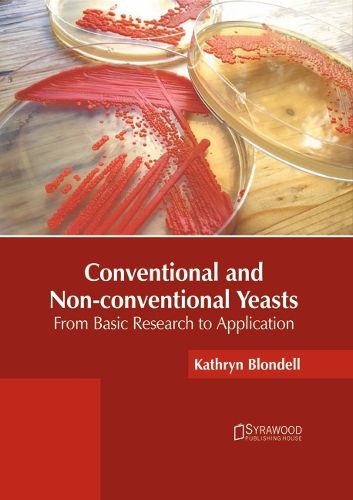Readings Newsletter
Become a Readings Member to make your shopping experience even easier.
Sign in or sign up for free!
You’re not far away from qualifying for FREE standard shipping within Australia
You’ve qualified for FREE standard shipping within Australia
The cart is loading…






Yeasts play a pivotal role in various industries owing to their fermentation capabilities. Conventional yeasts have been extensively researched and applied in baking and brewing due to their well-understood metabolic pathways and reliable performance under standard conditions. This foundational research has eased their widespread adoption in industrial processes. In contrast, non-conventional yeasts are gaining attention for their unique biochemical traits and adaptability to harsh environments. From research into these yeasts' specialised properties emerges potential applications in diverse fields such as biofuel production, bioremediation and pharmaceuticals. Bridging the gap from research to practical application is crucial for utilising the full potential of both conventional and non-conventional yeasts in advancing sustainable biotechnological solutions. Different approaches, evaluations, methodologies and advanced studies on conventional and non-conventional yeasts have been included in this book. There has been rapid progress in this field and its applications are finding their way across multiple industries. For all those who are interested in biotechnology and microbiology, this book can prove to be an essential guide.
$9.00 standard shipping within Australia
FREE standard shipping within Australia for orders over $100.00
Express & International shipping calculated at checkout
Stock availability can be subject to change without notice. We recommend calling the shop or contacting our online team to check availability of low stock items. Please see our Shopping Online page for more details.
Yeasts play a pivotal role in various industries owing to their fermentation capabilities. Conventional yeasts have been extensively researched and applied in baking and brewing due to their well-understood metabolic pathways and reliable performance under standard conditions. This foundational research has eased their widespread adoption in industrial processes. In contrast, non-conventional yeasts are gaining attention for their unique biochemical traits and adaptability to harsh environments. From research into these yeasts' specialised properties emerges potential applications in diverse fields such as biofuel production, bioremediation and pharmaceuticals. Bridging the gap from research to practical application is crucial for utilising the full potential of both conventional and non-conventional yeasts in advancing sustainable biotechnological solutions. Different approaches, evaluations, methodologies and advanced studies on conventional and non-conventional yeasts have been included in this book. There has been rapid progress in this field and its applications are finding their way across multiple industries. For all those who are interested in biotechnology and microbiology, this book can prove to be an essential guide.